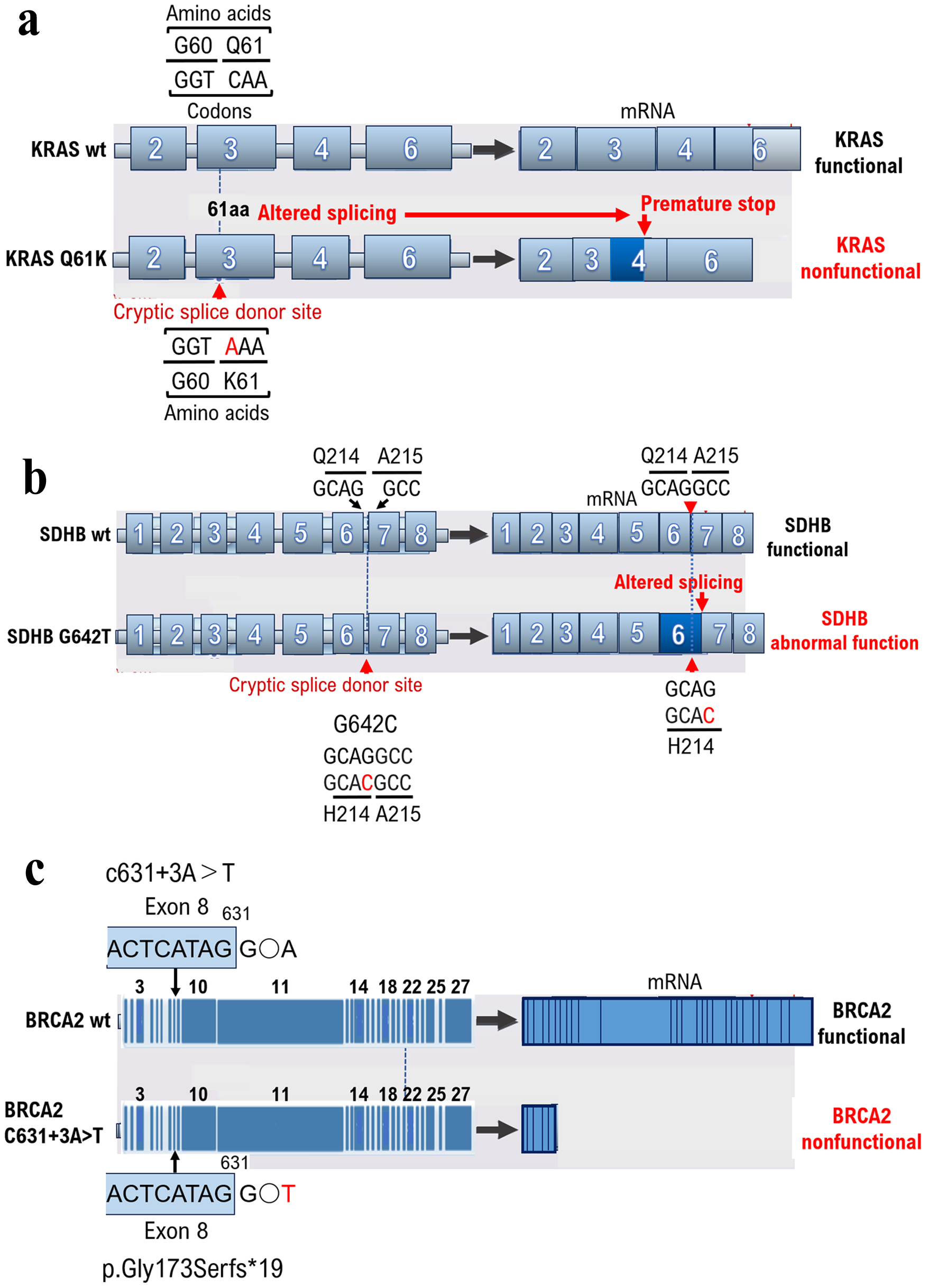
Figure 1. Base mutations can result in intron start signals, resulting in unexpected splicing. The results of cancer genome panel testing depend on a database built from the medical information of patients in Europe and the United States. Human genes differ depending on race; therefore, test results are not always correct. Unexpected splicing can occur because of base mutations that can cause intron start signals. (a) A silent KRAS gene mutation creates a base sequence that indicates the start of a new intron, which can lead to splicing. (b) The SDHB gene mutation G642C was determined to be a VUS from the results of a cancer gene panel test for a 41-year-old male patient with PPGL. The patient had no known family history of PPGL; however, PPGL onset occurred early in life. As a result, the mutation of the base G642C in the gene could have caused splicing abnormalities although the amino acid Q214H mutation was a VUS, as determined when checking the annotation content of the results of the cancer gene panel test. (c) Multiple family members of this patient had breast cancer, suggesting hereditary breast and ovarian cancer. Genetic testing for breast cancer susceptibility genes (BRCAI and BRCA2) was performed before the onset of ovarian cancer using BRAC Analysis (Myliad Co., Ltd., MA, USA). The c631+3A>T mutation was identified as a VUS based on the results of ClinVar analysis. However, we found that the c631+3A>T base mutation resulted in p.Gly173SerFs*19, which was diagnosed as a pathogenic variant when examined using the Medical Genomics Reviews Knowledge base for genomic medicine in Japanese (MGenReviews; National Institute of Global Health and Medicine, National Health Research Organization/National Center for Global Health and Medicine), a database that compiles the results of analyses of mutations specific to Japanese people.